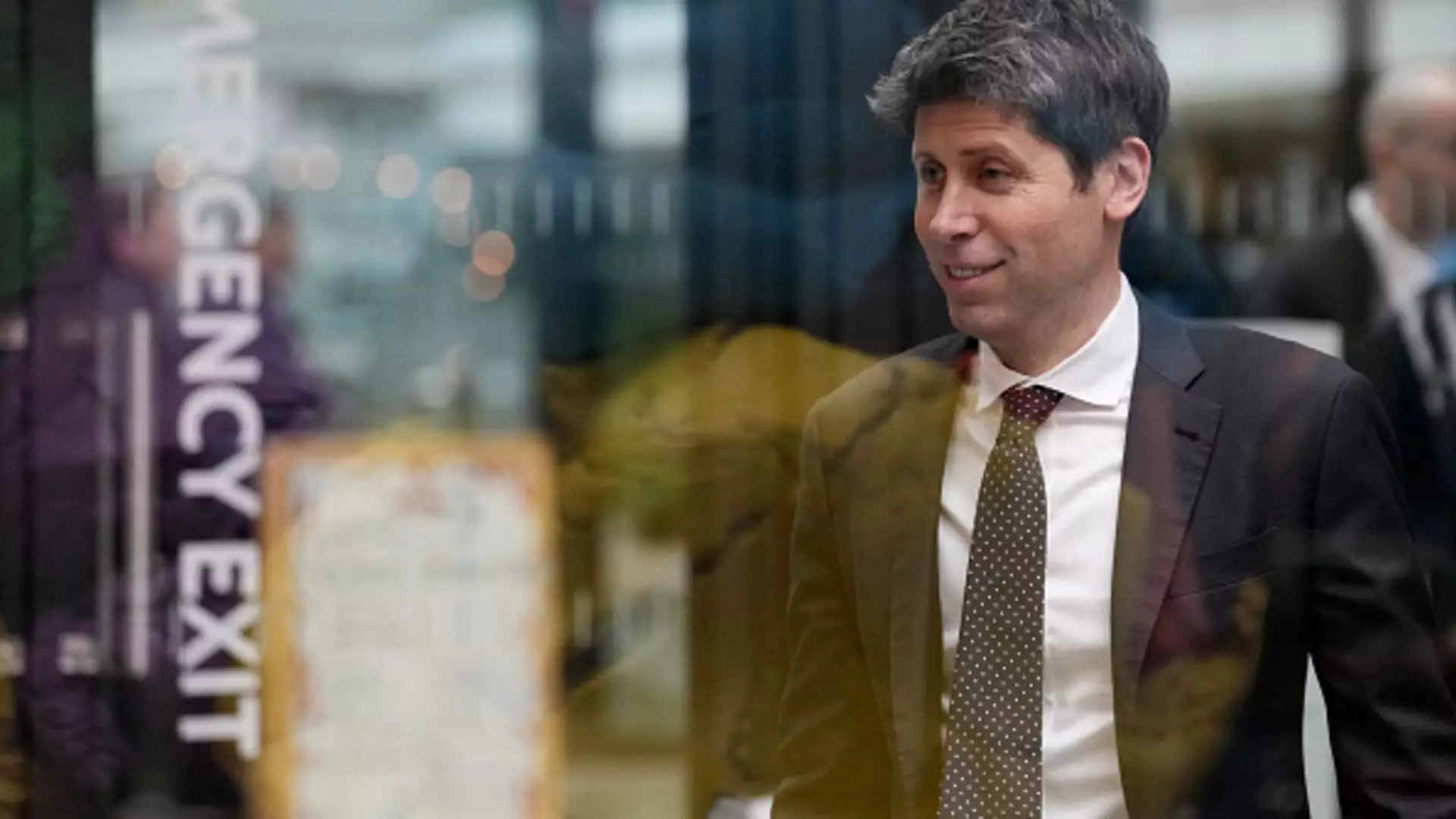In a world where technology is evolving at lightning speed, the artificial intelligence sector is at the forefront of this evolution, particularly in coding. The news that OpenAI, a dominant player in this field, has looked into acquiring Cursor—a popular AI coding tool—only underscores the heightened urgency among tech giants to secure their place in this arena. But as OpenAI glances toward competition and considers acquisitions, we must question whether this is the most strategic move. Shouldn’t innovation, rather than acquisition, be the core of their approach?
The success of Cursor demonstrates a significant shift in how programmers interact with technology. While OpenAI is galavanting around the acquisition table, startups like Anysphere—creators of Cursor—are making waves and earning recognition from users weary of conventional coding environments. The staggering rise in Cursor’s popularity suggests that users are seeking alternatives that resonate with their needs, preferences, and the evolving nature of programming itself. As of March, Cursor was boasting over a million daily users, indicating a growing dissatisfaction with existing tools like GitHub Copilot.
The Price of Innovation: Are $3 Billion Acquisitions Justified?
When news broke that OpenAI was contemplating a $3 billion deal to acquire Windsurf, many eyebrows were raised. This would mark OpenAI’s biggest acquisition yet, and such a hefty price tag raises critical questions: Is this spending justified? Are we witnessing a bubble in AI valuations akin to what we saw in the tech boom of the late ’90s? Several high-profile investors and industry insiders are beginning to echo a sentiment that warrants attention: the current path may veer dangerously close to a speculative frenzy.
Acquisitions can drive short-term growth, but they also engender a culture of stagnation. Instead of fostering organic growth through innovative programming advancements, there’s a risk that reliance on acquired technology may lead to complacency within OpenAI. The firm’s co-founder, Sam Altman, recently boasted about new reasoning models. Wouldn’t it be more pragmatic for OpenAI to channel funds into enhancing these models rather than inflating its portfolio with acquired companies?
The Illusion of Competitiveness through Consolidation
As OpenAI pursues Petty squabbles in the boardroom, a dangerous narrative is emerging among tech giants: that consolidation is the ultimate means of achieving dominance. This is a flawed mindset. cursor’s success isn’t just a trivial victory over competitors; it’s an indicator that the coding environment needs a shake-up. More and more programmers are leaning toward platforms that prioritize human input and creativity, rather than letting AI dictate all rules of engagement. The reality is that true innovation arises not from buying out competitors but from cultivating a community that encourages creativity.
Moreover, the ongoing trend of “vibe coding,” coined by OpenAI’s own Andrej Karpathy, is revealing a dichotomy in coding culture: a call for coding tools that serve not just the needs of efficiency but also the needs of the coder themselves. The tech space is hungry for platforms that not only streamline coding but also foster a collaborative spirit where users can iterate and build upon one another’s ideas. Failed acquisition attempts like those involving Cursor should serve as a wake-up call for OpenAI—a reminder that there’s no substitute for genuine connection and collaborative innovation in product development.
The Cultural Shift in Tech Investment
The investments flowing into AI coding startups reflect not merely financial speculation but a cultural shift within the tech sector. Companies like Anysphere are capturing the imagination of a newer generation of programmers who seek to break free from the rigidity of old methodologies. A $10 billion valuation for Cursor doesn’t simply point to inflated worth; it speaks to a collective yearning for tools that blend AI efficiency with human creativity.
OpenAI shouldn’t merely see these companies as competitors; they should recognize them as partners in changing the industry. Through collaboration—rather than acquisition—OpenAI could align its own advanced models with newer platforms, resulting in a mutually beneficial ecosystem. This proactive philosophy of partnership over competition might just lead to the transformative breakthroughs that the industry desperately needs, nurturing the very essence that drew many into programming in the first place: the blend of innovation and creativity.

Leave a Reply